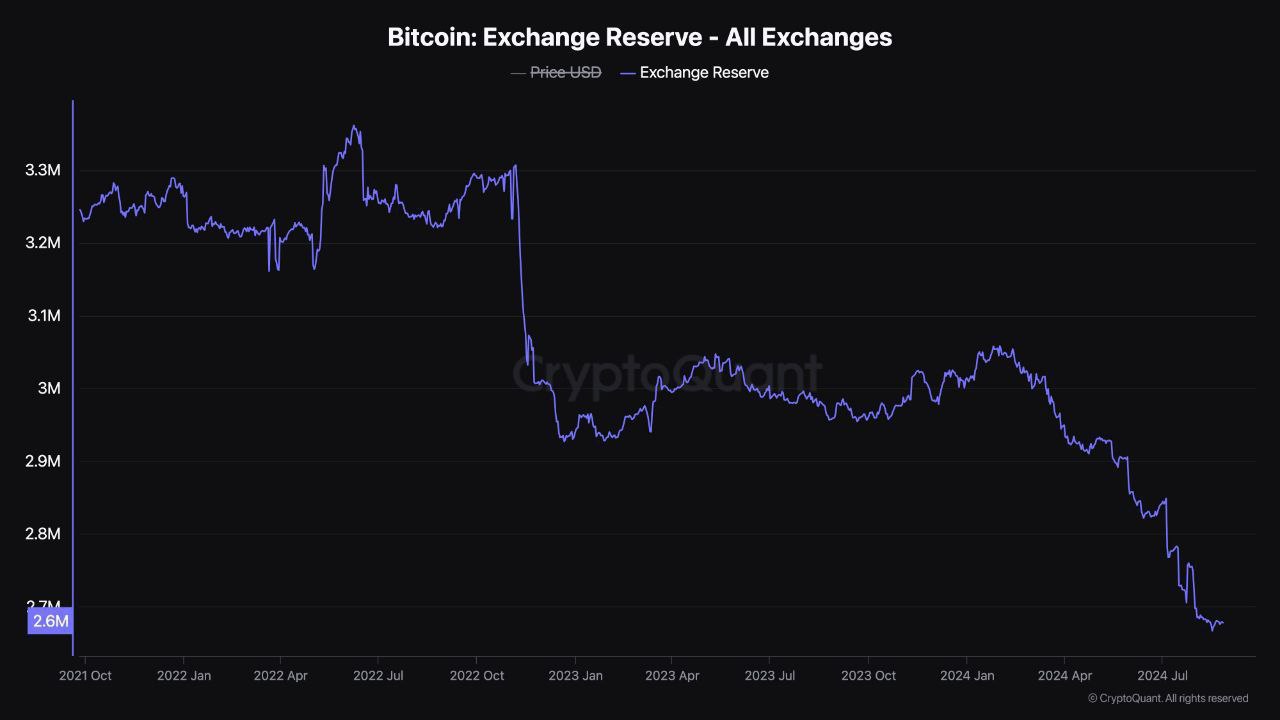Recent data compiled by Bloomberg reveals a concerning trend for China, as capital outflows reached $49 billion in August. This marks the highest monthly capital outflow since December 2015, creating added pressure on the Chinese yuan. Analysts attribute this phenomenon to several factors, including a robust U.S. economy in contrast to China’s weaker growth momentum post-COVID-19.
Bitcoin gains attention as an escape route
Markus Thielen, head of research and strategy at Matrixport, suggests that Chinese investors may increasingly turn to Bitcoin as a hedge against a weakening domestic economy. The depreciating yuan, combined with sluggish growth and weak margins among local companies, may drive investors to seek opportunities outside of China.
Despite China’s stringent capital controls, Thielen argues that cryptocurrencies like Bitcoin could become one of the few viable options for moving capital abroad. In a similar vein, BitMEX co-founder Arthur Hayes hinted at the possibility of Chinese capital flowing into assets like gold and paying down U.S. dollar offshore debt, with the hope that some of it would eventually find its way into Bitcoin.
In late 2016, reports emerged that Chinese investors were turning to Bitcoin as a means to move capital out of the country. Back then, the trading volume suggested a potential link between the value of the Chinese yuan and the price of Bitcoin, with the latter reaching its peak around late 2017.
However, crypto analysts like Edward Engel from Singular Research caution against drawing direct parallels to the past. Engel highlights that the landscape has evolved significantly, and the Chinese government has taken steps to close previous loopholes.
Engel notes that the last notable instance of Bitcoin being used for capital flight was in 2017-2018 when “junkets” facilitated underground banking for wealthy Chinese individuals. These entities helped move substantial sums of money overseas, but Chinese authorities have since clamped down on such operations.
The complex relationship between Bitcoin and capital flight
While the allure of Bitcoin as a tool for capital flight persists, it’s essential to recognize the multifaceted nature of this relationship. The Chinese government’s determination to curb capital flight has led to strict measures, including limits on foreign currency purchases, increased scrutiny of overseas investments, and restrictions on cryptocurrency trading.
This evolving regulatory landscape has made it increasingly challenging for Chinese investors to use Bitcoin as a primary vehicle for capital flight. However, as the cryptocurrency market remains relatively resilient and adaptable, it continues to attract interest from those seeking alternatives to traditional financial systems.
The ongoing situation in China raises intriguing questions about the potential role of cryptocurrencies, particularly Bitcoin, in capital flight scenarios. While history provides some precedent for Bitcoin’s use in this context, the ever-evolving regulatory environment and government measures make it less straightforward today.
As Bitcoin continues to grow as a global asset class, it may serve as a hedge against economic uncertainties not only in China but also in other regions facing similar challenges. The cryptocurrency’s decentralization and borderless nature could make it an attractive option for individuals and entities seeking to diversify their assets and protect their wealth.





